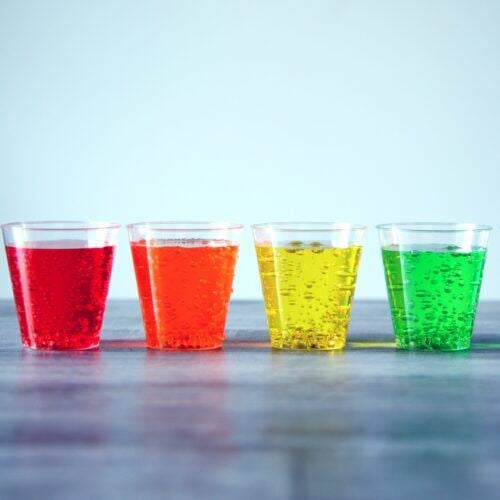Fizzy Drinks and Addiction: What’s the connection?
November 19, 2023 - Smart TMS

In today’s world, carbonated drinks are part of many people’s diets. They’re everywhere – from supermarkets to restaurants. But, with them being so popular, are we fully aware of the risks associated with them? Previous research has found that regular consumption of fizzy drinks is linked with negative health outcomes such as tooth decay, weight gain, an increased risk of chronic diseases including heart disease and type 2 diabetes, as well as significant sleep difficulties. However, new, emerging research is causing concern over the negative effects that fizzy drinks may have on children such as the connection with future addiction[1].
A recent study of 2,000 US children aged nine to ten found that daily consumption of fizzy drinks was associated with increased impulsivity and worse memory. Even more concerning, brain scans conducted by the researchers found that caffeinated drinks could make young individuals “more sensitive to the reinforcing effects of harder drugs like alcohol”.
For the study, the children were assessed on how often they drank fizzy drinks containing caffeine or high-caffeine energy drinks, and measured their performance in a series of tasks to measure brain development. Interestingly, the young participants who drank caffeinated drinks every day performed far worse than those who did not drink caffeine. Furthermore, the brain scans also highlighted differences in brain activity, with daily caffeine drinkers showing lower activity in the brain region called the anterior cingulate cortex, something that is also observed in children with ADHD and people addicted to drugs or alcohol [2].
Published in the Substance Use & Misuse journal – the concerning study also revealed that children who drank caffeinated drinks were more likely to try alcohol after one year. Lead author, Mina Kwon, explained ‘Our findings suggest that daily consumption of caffeinated soda in children is predictive of substance use in the near future.’ One possible explanation is that the substances contained in caffeinated soda [caffeine and sugar] could induce a toxicological effect on the brain.
The researchers caution that this study does not prove that caffeinated soda causes alcohol use or cognitive impairments in children, but rather that there is a correlation between them and addiction. It is possible that children who are more impulsive or have poorer working memory may be more drawn to caffeinated soda and alcohol, or that there are other factors that influence both behaviours [3].
However, the study does raise some concerns about the potential effects of caffeinated soda on children’s brain development and future substance use. With the UK government introducing a ban of energy drinks, and the NHS advising that fizzy drinks are not suitable for young children, this recent research is more relevant than ever. The researchers suggest that parents should limit their children’s intake of caffeinated soda, and encourage them to drink water, milk, or juice instead. In a world full of fizzy drinks, now may be time to consider the potential downsides for not only us, but also children’s mental health.
Author, Ben
Smart TMS Manchester Practitioner
References










